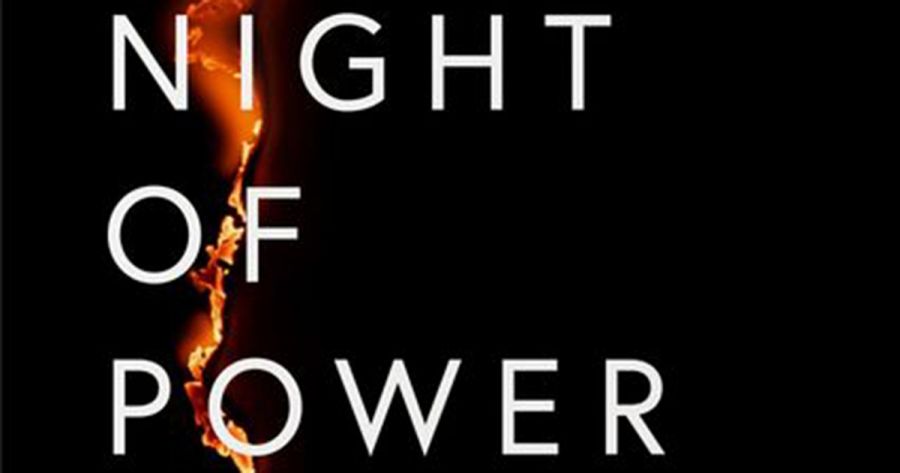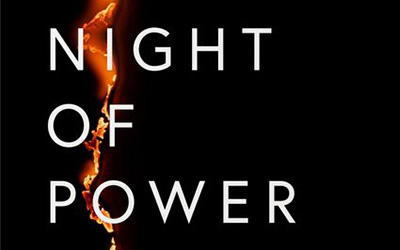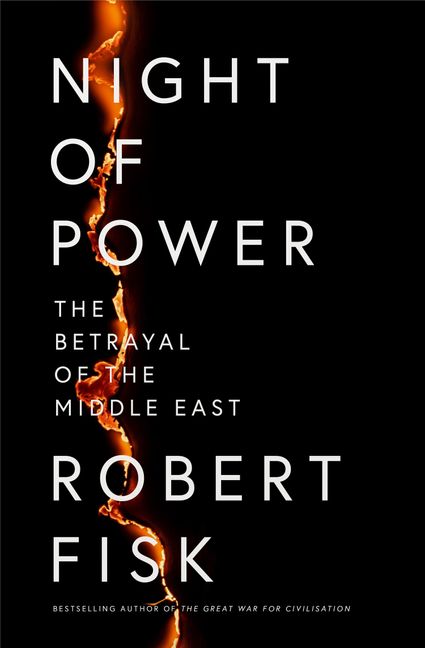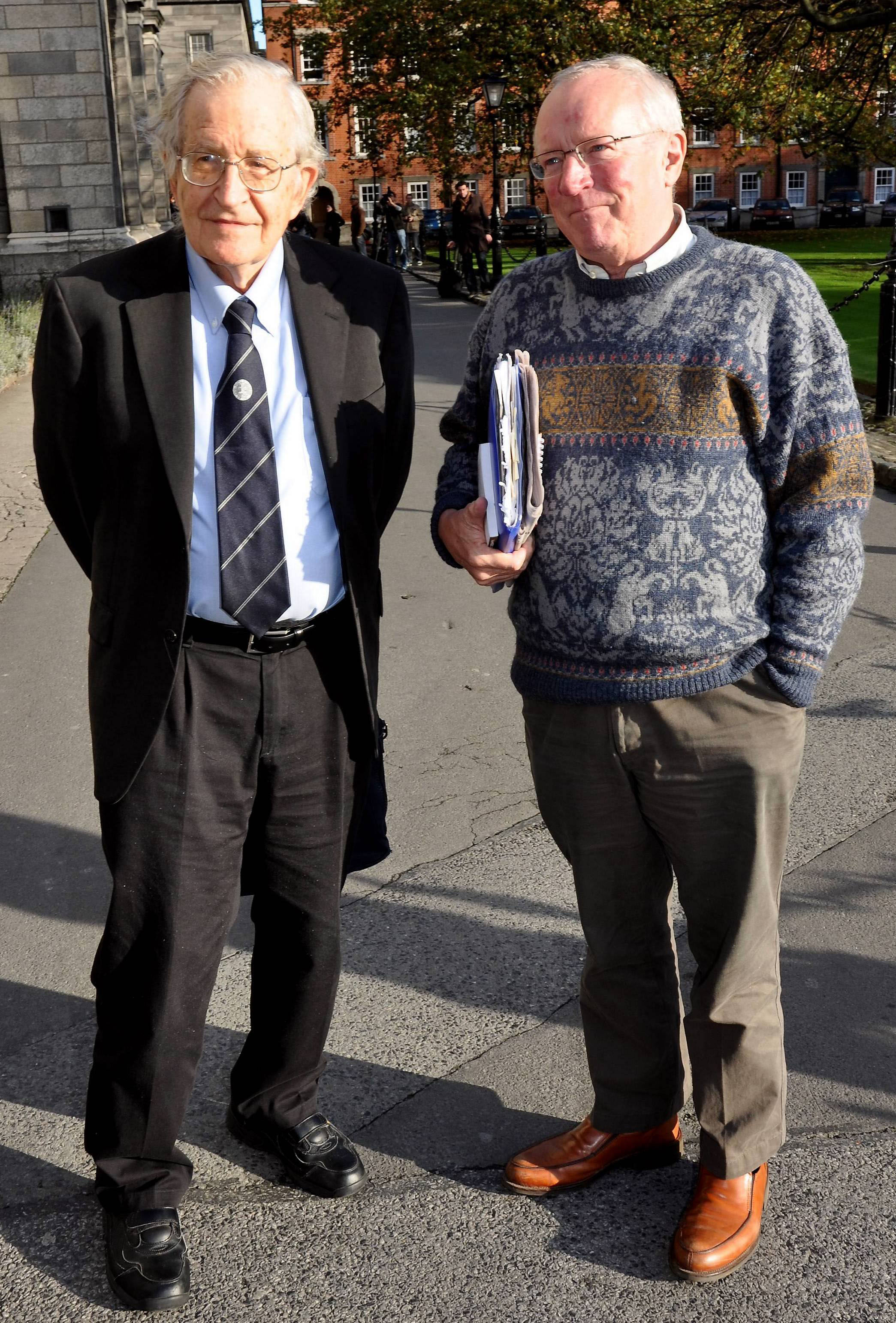
- Free Article: No
- Contents Category: Middle East
- Review Article: Yes
- Article Title: Heart of darkness
- Article Subtitle: A great reporter’s last dispatch
- Online Only: No
- Custom Highlight Text:
Robert Fisk was one of a few journalists who could rightly be described as a legend in his lifetime. Anyone with a passing interest in the Middle East over the past fifty years will certainly know his name and will probably have come across some of his reporting. Serious students of the region will have read his books. British-born, Fisk was mostly based in Beirut from 1976 until his death in 2020, during which time he covered all the wars – and horrors – of the greater Middle East. What he witnessed infuriated him; seething anger permeated his writing.
- Featured Image (400px * 250px):

- Alt Tag (Featured Image): Ian Parmeter review ‘Night of Power: The betrayal of the Middle East’ by Robert Fisk
- Book 1 Title: Night of Power
- Book 1 Subtitle: The betrayal of the Middle East
- Book 1 Biblio: Fourth Estate, $45 pb, 655 pp
- Book 1 Cover Small (400 x 600):

- Book 1 Cover (800 x 1200):

- Book 1 Readings Link: https://www.readings.com.au/product/9780007350612/night-of-power-calamity-in-the-middle-east--robert-fisk--1950--9780007350612#rac:jokjjzr6ly9m
One doesn’t read a Fisk book for new analysis. His approach is largely a given. Put simply, external powers – the Ottoman empire, followed by Britain and France, then the United States and Russia – have collectively intervened in the Middle East for centuries for their own benefit; whatever they do in the modern era should be interpreted in that light. Most of the region’s indigenous rulers are ruthless autocrats who remain in power through pitiless suppression of their peoples. Despite renewed Russian interest in the Middle East during the past twenty years and growing Chinese involvement, the United States is now the major external player; it and its protégé, Israel, tolerate the region’s strongmen provided they don’t try to challenge American or Israeli interests.
Knowing that background, one reads Fisk for his vivid reporting and his determination to go to great lengths, including putting himself in serious personal danger, to uncover the truth behind the self-serving accounts of conflicting parties. In The Great War for Civilisation, he quotes Israeli journalist Amira Hass with approval. When he tells her that journalists should try to be ‘the first impartial witnesses to history’, she corrects him: ‘No Robert … Our job is to monitor the centres of power.’ Fisk continues, ‘That is the best definition of journalism I have heard; to challenge authority – all authority – especially so when governments and politicians take us to war, when they have decided that they will kill and others will die.’
 Noam Chomsky and Robert Fisk, 2009 (WENN Rights Ltd/Alamy)
Noam Chomsky and Robert Fisk, 2009 (WENN Rights Ltd/Alamy)
Needless to say, events in the Middle East over his forty-four years in the region gave him enormous opportunity to put that definition into practice. Night of Power continues the narrative of the Iraq war to the formal US military withdrawal in 2011 (though US forces returned in 2014 to fight Islamic State). Fisk then picks up the Arab Spring from its hopeful beginnings in Tunisia in 2010, spreading to Egypt, Syria, and Yemen in subsequent years before its brutal quashing by Arab forces of reaction that had too much invested in the old system to let it die.
Fisk rightly makes the often-forgotten point that there were precursors to the Arab Spring: the Sunni uprising in Hama in 1982, ruthlessly suppressed by former Syrian President Hafez al-Assad, father of the recently ousted Bashar; and the Lebanese revolt against the country’s twenty-nine-year Syrian military occupation in 2005, which had echoes in the multi-sectarian demonstrations of 2019-20 over Lebanon’s economic collapse, caused by generations of corrupt government.
Fisk’s dedication to uncovering the truth led to some remarkable scoops. He had three meetings in the 1990s with Osama bin Laden, mastermind of the 9/11 attacks of 2001. In Night of Power, he reports a subsequent account of these meetings by bin Laden’s son Omar, in which Omar asked his father if he was ‘nervous about what this reporter might say’. Bin Laden replied, ‘No. He will be fair.’
Fisk writes that the meetings with the founder of al-Qaeda became ‘a kind of albatross for me’, because he was always introduced with a reference to that fact. Maybe, but he rehashes details of those meetings at length in both The Great War for Civilisation and Night of Power. In the latter book, he describes Bin Laden as ‘a mixture of self-conviction, vanity and a slight sense of humility’. But Fisk does not shy away from adding that Bin Laden was responsible for international crimes against humanity.
Night of Power and Fisk’s earlier books show how a dedicated expert on a complex region can uncover the underlying realities that external interventionists and regional governments of all stripes try to hide or minimise. His knowledge of the Arabic language was an essential tool – he could not have conversed with Bin Laden without it. Another important attribute was his remarkable range of contacts in Arab governments or other positions of influence, which enabled him to talk his way into the conflict zones where he was regularly the only external witness. He is particularly critical of those he describes as ‘hotel journalists’, reporters who accept local authorities’ accounts of developments and do little of their own investigative work.
Sometimes his eagerness to uncover the ‘real’ story led him to cut corners and got him into trouble. In 2011, he wrote a report for The Independent claiming that Saudi Arabia’s then Interior Minister, Prince Naif, had issued an order that police were to use live ammunition against Shia protesters seeking to provoke an ‘Arab Spring’ uprising. Naif sued for defamation and won substantial damages in the UK High Court, when his lawyers were able to prove that the report had been based on a fake document. Fisk was forced to apologise.
Questions have regularly been raised about the accuracy of Fisk’s accounts when he was the only Western reporter present. A degree of sloppiness with simple facts seems to support doubters’ arguments. Reviewing The Great War for Civilisation in The Guardian, former British ambassador Oliver Miles pointed out a ‘deplorable’ range of simple errors.
In that context, Night of Power has a curious claim (page 130 of the paperback edition) that raises questions about the accuracy of the fact being reported. He writes that ‘months’ after bin Laden’s escape from Afghanistan (which would make the date some time in 2002), Fisk received a message that bin Laden wanted to read The Great War for Civilisation. Accordingly, Fisk took an Arabic translation of the book to Islamabad and gave it to a courier along with a list of questions, including one about the looming US invasion of Iraq (which was to occur in March 2003). The problem with this account is that Fisk’s book was not published until 2005. What he writes may be substantially true, but the sequencing of events is wrong, causing one to wonder what really happened.
The text has a number of literal errors that should have been picked up in pre-publication editing. One I noted that would irritate readers unfamiliar with the Syrian civil war was to use the abbreviated term for the anti-Assad Free Syrian Army – FSA – several times before giving the title in full. This is always a risk when newspaper reports are mashed together to form a chapter, but whether Fisk or Nelofer is at fault here is not clear. Nelofer does not list herself as co-author of the book.
It is not hard to imagine what Fisk would have written about Israel’s wars in Gaza and Lebanon since the Hamas surprise attack on Israel on 7 October 2023. He would have condemned Hamas’s brutality, but doubtless would have been incandescent with anger about the Netanyahu government’s disproportionate military response. One can sense his sheer outrage at the deaths of thousands of innocent Palestinian and Lebanese women and children.
The book includes a sad note. In a preface dated May 2014 summing up his career, Fisk laments that ‘nothing I wrote seemed to have any effect’. No matter how meticulously he recorded the horrors he bore witness to through his reporting, the horrors had repeated themselves over and over again, year after year. Fisk comforts himself with the thought that no one could claim that they hadn’t been warned.
But he wonders, if he had foreseen his career trajectory in 1976 when The Times offered him the post of Middle East correspondent, ‘would I have agreed to spend so much of my life in the heart of such darkness?’ He concludes he would have because his work in the region over so long a period had been like watching history at close range. Fascinating as watching history unfold is, my guess is that with his sympathy for the misery still felt by hundreds of thousands of the region’s inhabitants, he would rather have helped to change that history. Robert Fisk’s tragedy is that he could not achieve that.


Comments powered by CComment